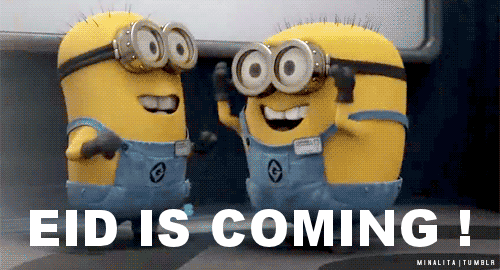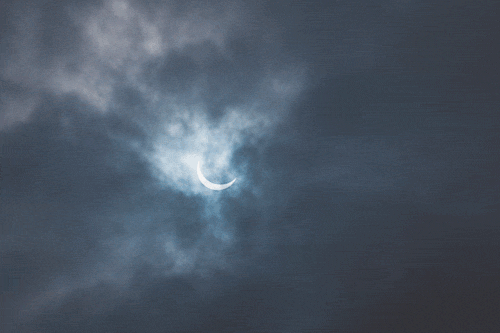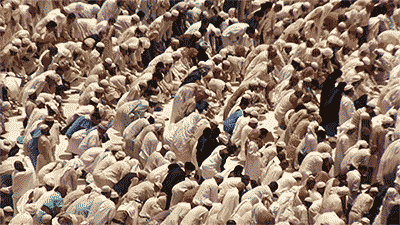Hi!
So,
after a kind request from a lovely educator I know on the Interwebs, I decided
that perhaps it was time to take on a new project. This project was originally
called, “The Teen’s Guide to Islam: The Basics,” but since that original post
racked up almost fifty questions from both my own head and
sweet, curious contributors, I thought that it might be prudent to break it up
into short and sweet topic divisions.
And,
seeing as we’re in major moonsighting/stalking masjid website announcement
mode, why not introduce you guys to one of the most anticipated months in the
entire Islamic calendar?
Hang
on tight, my dear readers, because this is…
The Teen’s Guide
to Islam: Ramadan
(I
could have come up with a cooler title. If I myself was cooler. Alas on both
counts.)
So. What is Ramadan, anyway?
Ramadan
is the ninth month of the Islamic calendar. (Just so you know, if we were
having this conversation in real life, I’d totally sidetrack the entire
discussion by singing this.
You’re welcome for the adorable and informative earworm.)
There
are many reasons why Ramadan is seen as an important and sacred month in the
Islamic faith – mainly because a lot of cool and historical stuff is known for
occurring within it. But I’ll give you the Cliffs Notes version:
- The Qu’ran, our Holy Book, was revealed during Ramadan – specifically on the Night of Power, or Lailatul Qadr. That’s near the end of the month, so let’s talk about that again near the end of the post.
- During Ramadan, Muslims who have reached puberty and are in good health do not have food or drink from sunrise to sunset, for all twenty-nine or thirty days it lasts. That’s probably the reason you’ve heard about it recently.
- Fasting in Ramadan is one of the Five Pillars of Islamic faith…which we’ll talk about in more depth at a later date. Suffice it to say, it’s very, very important.
Wait, no food or drink? At all?
You just don’t eat for thirty days?
No.
Don’t worry. That’s not what’s going to happen at all.
When I
say that we fast from sunrise to sunset, it means that we get up in the wee
hours of the morning when there’s no light outside yet – so, before sunrise,
technically.
We eat breakfast (which is called suhoor) and brush our teeth and do whatever else we have to that
involves ingesting something – and as a side note, if you know any older Muslim
sisters who might get a little cranky with you during this time of year, it’s
because if you want to go back to sleep, coffee and chai are a bit of a no-no.
And
then we pray Fajr, which is the first prayer of the day, and we either hit the
hay again for a little bit of shut eye if we can manage it – or we start
getting ready for school or work.
Like a
boss.
 |
| Credit goes to the talented Tumblr artist, serendipikitty. |
(Seriously,
I don’t know why people don’t appreciate how metal Muslim students and
professionals are around this time of year. You get up earlier than you do to
prepare for school, you get your religious time in and then you head into the
daily grind. And you don’t get coffee breaks during the day.)
What’s the deal about sighting
the moon? Do you worship the moon during this month?
The
Islamic calendar follows the patterns of the lunar calendar, which, as the name
implies, follows the cycles of the moon. So when we turn out for moon-sighting,
we’re literally trying to see the new crescent and figure out if a new Islamic
month is starting. This happens year round, not just for Ramadan, but this is
the time of year when it’s the most exciting to be part of a big group looking
for the moon.
So,
TL/DR: it’s not anything religious or devotional to the moon. It’s just
science.
I heard Ramadan used to be in
the winter. Why did you guys move it to the summer months? Doesn’t that make it
harder?
It’s
all about the lunar calendar, friend. Eventually, Ramadan will roll back around
to the fall and winter months. It definitely makes it harder, but I like to
think that eighteen-hour fasting days means more blessings to go around for
keeping your cool and being kind to people.
Is there anything else you have
to avoid while you’re fasting besides food and drink?
Anything
edible. Some people even avoid lip balm, because it might get into their mouth.
When we brush our teeth or wash up before prayers, we try not to swallow the
water or the toothpaste (which, you know, is already an acceptable and
dentist-encouraged practice). Smoking is also discouraged.
Also,
this is totally not on the side of eating or drinking, but you’re not supposed
to get angry or start fights or be hateful or discriminatory or rude – which, I
know, all normal things, but this is a month of blessings, community and unity,
and particularly with rising temperatures, it’s easy for some people to get
heated. Sometimes, you just have to take a deep breath and let something go.
If something like water goes in
your mouth, or you forget and accidentally eat, are you in trouble?
(This
question, and the heart of its answer, are thanks to the mind of my wonderful
friend Yasmin, one of the Writing with Color moderators. Thanks, Yasmin!)
Believe
me, particularly in the early years, this happens to everyone. You’re out, it’s
warm, your mouth is dry, you see a water fountain and those blessed little
Dixie cups – you’re outside the door and sipping happily before it hits you in
your stomach with a lurch.
Oh. It’s
Ramadan.
I’m
fasting.
Like I’ve
already mentioned before, God is merciful. There’s no compulsion or pressure in
faith for you to be positively perfect in every single way. We’re only human
and we make mistakes and sometimes you think you heard the call to prayer at
sundown and you can break fast, but you’re two minutes early.
One of
the important aspects of participating in Ramadan is your intention. You had
good intentions. You wanted to fast. I’ve always been taught that if you
accidentally slip up, you just restate your intention to fast and continue
forward with the rest of the day. No blaming, no guilt.
Yasmin
adds, “My non-fasting friends are really good about reminding me if I ever
forget and reach for food, but it almost always happens every Ramadan and it’s
not a big deal.”
What can you do when you’re
fasting?
We are
encouraged to do things that improve the world around us. Another facet of
fasting is having empathy with those who are poor and needy and who do not have
the privilege of eating during the day, if at all. A lot of Muslims volunteer
in soup kitchens, prepare meals for needy families in their area, and give
charity.
Muslims
also devote themselves to reading the Qu’ran, particularly in its entirety and
most often in Arabic, since that was the language it was revealed in. And,
though it’s not mandatory, you’ll see a majority of masjids and community
centers performing evening prayers after the last prayer of the day, Isha.
These
prayers are called Taraweeh and are considered an extra good deed to perform
during this month, as well as a way to mingle with other Muslims in the
community and spend some devotional time together.
Are there any reasons you could
get out of fasting?
Yes –
and let me add for any Muslim teens reading along at home (hi, lovelies): do
not feel embarrassed if you need to break your fast. Do not feel embarrassed if
you aren’t fasting to begin with. You are fine. You’re still participating in a
Holy Month.
In the
second chapter of the Qu’ran, verse 185, note after the description of fasting
in Ramadan that it continues on with, “…Whoever is ill or on a journey – then
an equal number of days. God intends for you ease and does not intend for you
hardship…”
It’s
right there in the Holy Book. If you’re ill, elderly, travelling or under a
similar stress, you’re okay. You will have to make those days up later on in
the year, but our faith stresses that there is no compulsion in religion. You
don’t have to make yourself even sicker when God has told you that it’s okay to
take a break.
This
year, there’s been a lot of questions about kids with eating disorders, and the
general consensus is that this falls under this same criterion: if you feel
like this will be a stress on you, it’s okay. You can get up with your family
in the morning if you want to. You can attend prayers and events and lectures.
You can feed a fasting member of your family or in your friend circle.
Just
remember that God also wants us to take care of ourselves.
Do little kids have to fast,
too?
Actually,
no. The official guideline is that when you reach puberty, you should be
fasting for the entire month. Adding in considerations about maturity, health,
weight, long fasting hours during the summer and other variables, little kids
are generally discouraged to fast – for full days, at least.
I know
I’m not the only Muslim kid who started out with half-fasting days. That meant
my parents told me I could fast until the early afternoon, eat lunch, and then
fast for the remaining hours left in the day, if I wanted to. That way, the kid
feels like they are participating, are not placing strain on their bodies, and
feel pretty darn good about life all around.
Of
course, there are smooth operators like my younger cousin who sneak in full
days sometimes by just not eating at the cut-off time. And, okay, I did that a
few times myself. As long as kids are getting up with their parents and not
fasting the entire month, though, they should be all good.
Is there any way I could help
you while you’re fasting?
First
of all, can I sincerely say how sweet you are?
Thank
you.
Okay, first of all…I know this time of year, Tumblr in particular will be passing
around a post that pretty much says Muslims can’t look at food pictures or
their fast will be broken and to tag all food posts accordingly.
Now,
I’m going to get all mythbuster here, folks. We can totally look at pictures of
food. We just tend to not want to, for obvious reasons.
(Well,
most normal Muslims do. A few Ramadans, I’ve gotten in trouble with friends for
browsing Foodgawker in their immediate vicinity.)
That
said, it’s a very sweet thought to tag your food posts, or anything you feel
might break someone’s concentration on Ramadan, so don’t be afraid to do that.
I know a lot of Muslim teens online who appreciate that.
Beyond
that, I’d think I would just suggest general kindness and friendship. Be aware
that your Muslim friend is fasting and be respectful of that (ie. playing a
game of, “Let me wave this lunch in her face!” is something I know you wouldn’t
do and is obviously a no-no).
So after Ramadan ends, what
comes next?
Eid
al-Fitr, which is literally what I hear most little kids looking forward to
right now (even though we’re just starting Ramadan).
 |
| Slow your roll, kiddos. |
Eid al-Fitr translates to
mean the “Festival of Breaking the Fast,” and, like the name suggests, means
that we get to celebrate the end of a beautiful month with our families and
friends.
Eid
al-Fitr begins with a communal prayer that everyone is encouraged to attend.
After the prayer, everyone is supposed to remain seated quietly while a sermon
is delivered – usually on how we should carry the virtues and kindness of
Ramadan in our hearts for the rest of the remaining year.
And then, everyone
exchanges Eid greetings and disperses to wherever else they may be celebrating.
I
can’t speak for how others celebrate it, but in our community, there is usually
a trip to Six Flags or an amusement park planned by the masjid or community
center so the kids can enjoy themselves. My family personally doesn’t really
dig amusement parks, so we tend to get together at a family member’s house, eat
good food and watch a few movies.
So you get to eat on Eid,
right?
It is a festival! But yes, fasting on Eid
is forbidden. That’s why moonsighting the night before Eid might be just as or
even more anticipated than for Ramadan. Also, you might see a lot of families
discussing whether or not their communities have decided on the same day for
Eid. That’s why. There’s always worry that someone will either skip the
celebration or be the person sitting in the corner and still fasting while
everyone else eats.
Wait, not everyone does Eid the
same day?
It’s a
major issue, every year. In a nutshell, it all boils down to whether or not you
follow the pre-calculated calendars or if you’d rather wait to see if the moon
is sighted before you start Ramadan. Of course, at the end of the twenty-nine
or thirty days, there’s another moon sighting for Eid, but if you started a day
ahead or a day later, your community might have a different projected end date.
Thankfully,
the last two years – at least in my area – has seen agreement between both the
precalculated dates and the moonsighting committees. So here’s hoping to many
more!
You mentioned something before
about a Night of Power?
Thank
you for reminding me! The Night of Power, or Lailatul Qadr, is the night on
which the Qu’ran was revealed to the Prophet, Peace Be Upon Him. It falls on
one of the odd-numbered nights in the very last days of Ramadan, and Muslims
tend to stay up on any of those odd-numbered nights, devoting themselves to
prayer and meditation, because it is considered a night of great blessing and
spiritual benefit.
Usually,
people take the 27th as the day when Lailatul Qadr is most likely to
be, but that’s not confirmed or sealed in concrete.
One last question: could I
share Ramadan with you?
Dude,
of course. Why not? Interfaith events and friends sharing and experiencing
Ramadan is one of the coolest things. Feel free to try a day of fasting, or
even half-fasting, which is something a lot of religious communities do in
solidarity and friendship. If you want, you can also prepare food for a friend
to break fast with – which is something that Muslims encourage for extra
blessing – or accept an invitation to join a family (or your local masjid!) for
Iftar.
To me,
the heart of Ramadan is in kindness and humanity. If you want to be part of
that, that’s just beautiful and exactly in the spirit of things. Thank you for
being so sweet and awesome.
Have another question about
Ramadan or a question for the Teen Guides in general? Feel free to leave a
comment, and Ramadan Mubarak to all!






0 comments:
Post a Comment